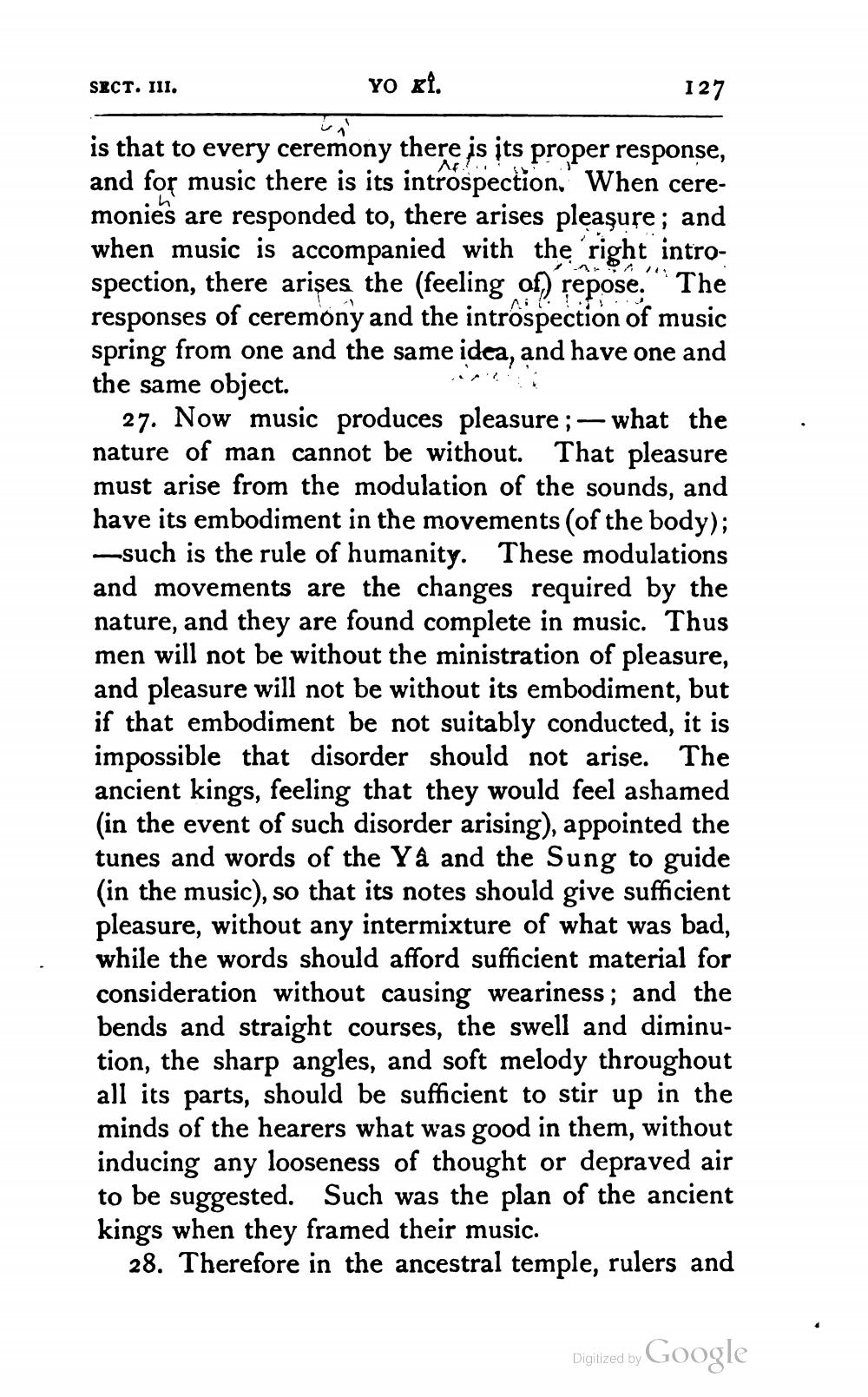________________
SECT. III.
YO Kİ.
127
M.
is that to every ceremony there is its proper response, and for music there is its introspection. When ceremonies are responded to, there arises pleasure; and when music is accompanied with the right introspection, there arises the (feeling of) repose. The responses of ceremony and the introspection of music spring from one and the same idea, and have one and the same object.
1^. A
27. Now music produces pleasure; - what the nature of man cannot be without. That pleasure must arise from the modulation of the sounds, and have its embodiment in the movements (of the body); -such is the rule of humanity. These modulations and movements are the changes required by the nature, and they are found complete in music. Thus men will not be without the ministration of pleasure, and pleasure will not be without its embodiment, but if that embodiment be not suitably conducted, it is impossible that disorder should not arise. The ancient kings, feeling that they would feel ashamed (in the event of such disorder arising), appointed the tunes and words of the Yâ and the Sung to guide (in the music), so that its notes should give sufficient pleasure, without any intermixture of what was bad, while the words should afford sufficient material for consideration without causing weariness; and the bends and straight courses, the swell and diminution, the sharp angles, and soft melody throughout all its parts, should be sufficient to stir up in the minds of the hearers what was good in them, without inducing any looseness of thought or depraved air to be suggested. Such was the plan of the ancient kings when they framed their music.
28. Therefore in the ancestral temple, rulers and
Digitized by
Google




